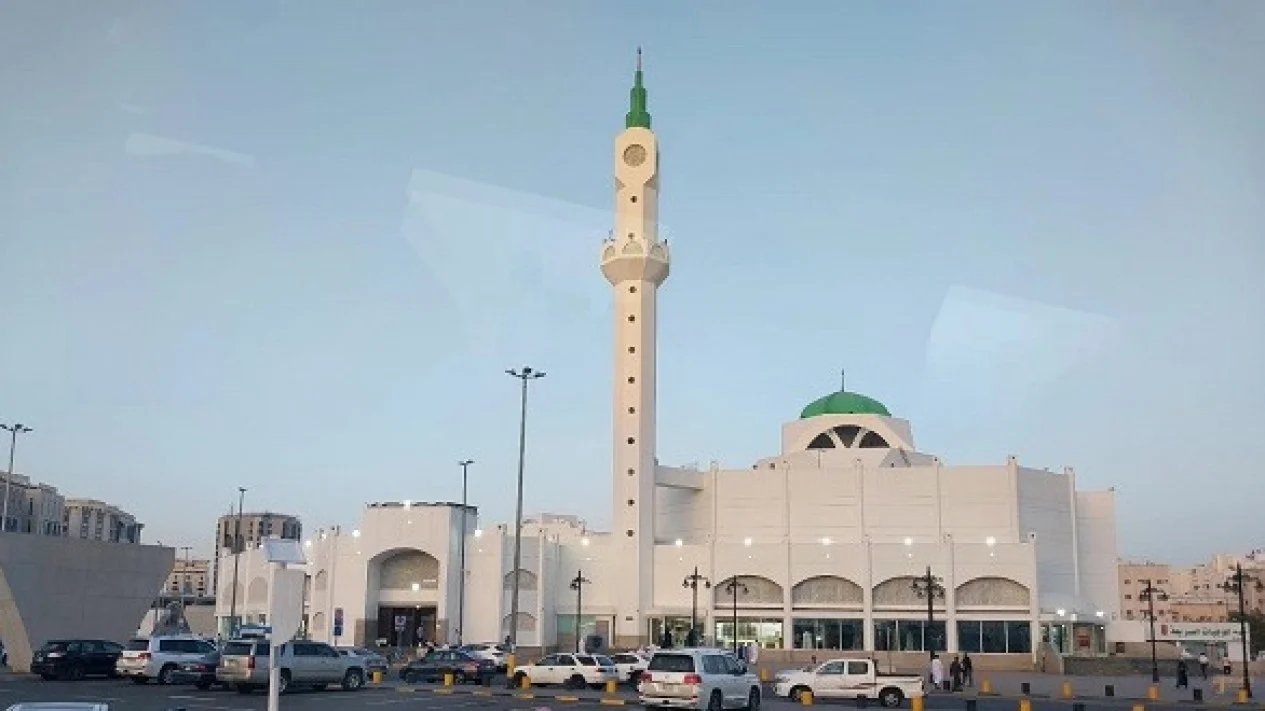Historical sources mention two theories regarding the name Ibrahim, one linked to the prophet Ibrahim,
and the other to Ibrahim Abu Qubaysi. The mosque was later known as the Bilal Mosque, possibly due to
Bilal's call to prayer over there. Some sources also claim it was where the Prophet performed the
miraculous act of splitting the moon.
Bilal Bin Rabah Mosque, named after Bilal ibn Rabah (may Allah be pleased with him), is a mosque that
honors one of the most esteemed companions of Prophet Muhammad (peace be upon him). Bilal is celebrated
for being the first muezzin (the one who calls to prayer) in Islam and for his unwavering faith and
dedication to Islam, even in the face of severe persecution.
Key Aspects of Bilal Bin Rabah Mosque :
Location :
The mosque dedicated to Bilal bin Rabah can be found in various countries, as many Islamic communities
honor him by naming their mosques after him. One notable mosque is in Mecca, near the Masjid Al-Haram,
where Bilal's presence was significant during the early days of Islam.
There are also other Bilal Bin Rabah Mosques in cities like Medina, Riyadh, and even internationally in
countries with large Muslim populations, such as Jordan, Lebanon, and Syria.
Who Was Bilal ibn Rabah ?
Bilal ibn Rabah was an Abyssinian (Ethiopian) slave who embraced Islam in its early days in Mecca. He is
known for his steadfastness in the face of persecution by his master, Umayyah ibn Khalaf, who punished
him severely for his faith.
Bilal was famously tortured under the scorching sun of the desert, with heavy stones placed on his
chest, yet he continued to declare "Ahad, Ahad" (One, One), referring to his belief in the Oneness of
Allah.
His freedom was eventually purchased by Abu Bakr (may Allah be pleased with him), who then set him free.
Bilal as the First Muezzin :
After his liberation, Bilal became one of the close companions of Prophet Muhammad (peace be upon him)
and was chosen to be the first muezzin of Islam, the person responsible for calling the adhan (call to
prayer).
His voice was known for its beautiful and melodious tone, and he had the honor of calling the adhan at
significant moments in Islamic history, including the conquest of Mecca, when he was asked to call the
adhan from atop the Kaaba.
Bilal's role as the first muezzin symbolizes the equality and brotherhood emphasized by Islam,
regardless of race, status, or background.
Significance of the Mosque :
A mosque named after Bilal bin Rabah serves as a tribute to his courage, faith, and contributions to the
spread of Islam.
It stands as a reminder of Islamic values such as resilience in the face of oppression, dedication to
monotheism, and the equality that Bilal represented through his life story.
The mosque provides a space for worship, community gatherings, and learning, in line with Bilal’s legacy
as a figure who called people towards the worship of Allah.
Architectural and Community Role :
Like other mosques, the Bilal Bin Rabah Mosque is typically designed with prayer halls, minarets, and
courtyards that accommodate daily prayers, as well as Friday sermons (khutbahs).
These mosques are often equipped with facilities for ablution (wudu), lectures, and Quranic classes,
making them important centers for community learning and spiritual growth.
The mosque also serves as a hub for charitable activities, community support, and Islamic education,
reflecting the values of service and devotion that Bilal ibn Rabah embodied.
Spiritual Significance :
Visiting or praying at a mosque dedicated to Bilal bin Rabah is meaningful for many Muslims, as it
provides an opportunity to reflect on the life of a companion who remained steadfast despite immense
challenges.
It serves as a reminder of the early struggles of Muslims in Mecca and the principles of perseverance
and faith that were exemplified by Bilal.
The mosque's name and legacy encourage worshippers to appreciate the diversity and unity within the
Muslim community, qualities that were championed by Bilal's story in the early Islamic community.
Bilal's Legacy in Islam :
The story of Bilal ibn Rabah continues to inspire Muslims around the world. His appointment as the first
muezzin of Islam by Prophet Muhammad (peace be upon him) signifies the importance of faithfulness,
honor, and dignity, regardless of one’s background.
His call to prayer is remembered as a symbol of freedom and spiritual elevation, echoing the message of
Tawhid (the Oneness of Allah) that is central to the Islamic creed.
Bilal Bin Rabah Mosque stands as a tribute to one of the most beloved figures in Islamic history. It
celebrates his enduring spirit, his dedication to Islam, and the principles of equality and justice that
he lived by.



